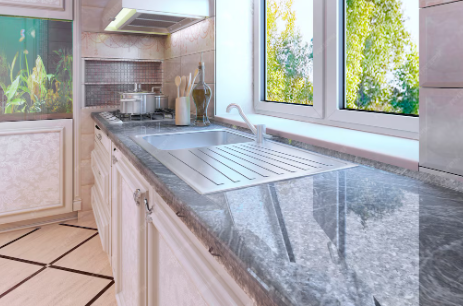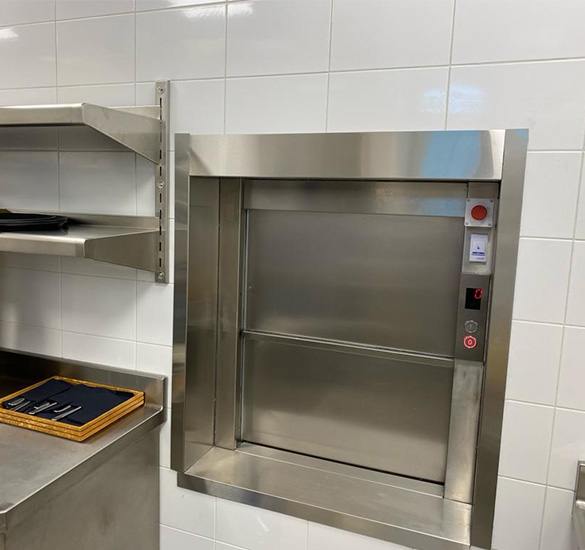Quartz kitchen worktops have become one of the most popular choices for modern homes, thanks to their sleek appearance, durability, and low-maintenance nature. Whether you’ve just installed new quartz countertops or you’ve had them for years, proper care and maintenance are essential to keeping them looking flawless.
In this guide, we’ll cover everything you need to know about maintaining quartz kitchen worktops, including cleaning techniques, stain prevention, and expert maintenance tips.
What Makes Quartz Kitchen Worktops So Popular?
Quartz worktops are engineered from around 90–95% natural quartz crystals mixed with resins and pigments. This combination results in a surface that is both beautiful and highly resilient. Unlike natural stones such as granite or marble, quartz doesn’t need regular sealing and is resistant to stains, scratches, and bacteria.
Here’s why homeowners love quartz:
-
Non-porous surface: Doesn’t absorb liquids, making it easy to clean.
-
Durable and strong: Resistant to chips, cracks, and scratches.
-
Stylish finish: Available in a wide range of colors and patterns.
-
Low maintenance: Requires minimal effort to keep it looking brand new.
With all these advantages, quartz kitchen worktops are an investment that enhances both the beauty and functionality of your kitchen.
Daily Cleaning Tips for Quartz Kitchen Worktops
Maintaining quartz worktops starts with simple daily cleaning habits. Since quartz is non-porous, you don’t have to worry about deep stains or bacteria buildup — but daily care keeps your surface sparkling.
1. Use a Soft Cloth and Mild Soap
For everyday cleaning, simply wipe your quartz kitchen worktops with a soft cloth or sponge and a mixture of warm water and mild dish soap. Avoid harsh chemicals — they can dull the surface over time.
Quick tip: Microfiber cloths work best because they’re gentle and trap dust effectively.
2. Wipe Spills Immediately
Although quartz is resistant to stains, substances like coffee, wine, or curry can leave marks if left too long. Always wipe spills immediately using a damp cloth to prevent potential discoloration.
3. Avoid Abrasive Pads
Scouring pads, steel wool, or rough sponges can scratch the surface. Stick to non-abrasive cleaning materials to preserve the glossy finish of your quartz kitchen worktops.
How to Remove Tough Stains from Quartz Worktops
Even with regular cleaning, stubborn stains can sometimes occur. The good news? Quartz is easy to restore with the right methods.
1. Use a Non-Abrasive Cleaner
For tough stains, use a non-abrasive household cleaner such as a glass cleaner or a pH-balanced surface cleaner. Spray it on the stain, let it sit for 5–10 minutes, and gently wipe it off with a soft cloth.
2. Tackle Grease with Dish Soap
If oil or grease builds up, mix warm water with a few drops of dishwashing liquid. Apply it to the affected area, then rinse thoroughly and dry with a paper towel.
3. Baking Soda Paste (Use Sparingly)
For really stubborn spots, you can use a small amount of baking soda mixed with water to form a paste. Gently rub the paste onto the stain using a soft cloth — but avoid overusing this method as baking soda can be mildly abrasive.
Things You Should Avoid on Quartz Kitchen Worktops
Quartz is durable, but it’s not indestructible. To ensure longevity, avoid common mistakes that can damage your countertop.
1. Avoid Excessive Heat
Quartz can withstand moderate heat, but direct contact with hot pots or pans can cause thermal shock, leading to cracks or discoloration. Always use heat mats or trivets to protect your worktop.
2. Don’t Cut Directly on the Surface
While quartz is scratch-resistant, using knives directly on the surface can dull both your knives and the countertop. Always use a cutting board when preparing food.
3. Avoid Harsh Chemicals
Strong chemicals such as bleach, paint removers, oven cleaners, or drain cleaners can damage the resin in quartz. If such substances accidentally spill on your worktop, clean them immediately with warm water and mild soap.
4. Don’t Drag Heavy Objects
Dragging heavy pots, appliances, or utensils can cause chips or scratches on the edges. Lift items instead of sliding them across the surface.
Seasonal Deep Cleaning for Quartz Kitchen Worktops
While daily cleaning is sufficient for regular maintenance, performing a deep clean every few months helps keep your worktops in perfect shape.
Step-by-Step Deep Cleaning Routine
-
Clear the surface: Remove all appliances, utensils, and decor items.
-
Use a gentle cleaner: Spray a quartz-safe surface cleaner evenly.
-
Let it sit: Allow the cleaner to rest for 5 minutes to dissolve buildup.
-
Wipe thoroughly: Use a soft microfiber cloth to wipe the surface clean.
-
Rinse and dry: Use warm water for rinsing, then dry with a lint-free towel for a streak-free finish.
Bonus Tip: After deep cleaning, polish the surface with a quartz-safe polish to enhance the shine and protect it from minor scratches.
Maintaining the Shine of Quartz Worktops
Quartz naturally maintains its shine, but regular polishing can keep it looking showroom-perfect.
-
Use quartz polish: Choose a polish specifically made for engineered stone surfaces.
-
Avoid wax-based products: These can leave a cloudy residue over time.
-
Buff gently: Use circular motions with a soft microfiber cloth to restore a glossy finish.
If your quartz kitchen worktops have lost their sheen due to years of use, professional polishing can help rejuvenate the surface.
Preventing Discoloration on Quartz Surfaces
Quartz worktops are resistant to fading, but prolonged exposure to UV light can sometimes cause discoloration.
To prevent this:
-
Install blinds or curtains in kitchens with strong direct sunlight.
-
Choose lighter quartz colors if your kitchen receives intense sunlight.
-
Avoid placing small appliances that emit heat (like toasters) in the same spot for long periods.
With proper care, your quartz surface will retain its color and shine for years to come.
Repairing Minor Damage on Quartz Kitchen Worktops
If your worktop develops small chips or scratches, they can often be repaired easily:
-
For small chips: Use a clear resin or epoxy filler specifically made for quartz.
-
For scratches: Lightly buff the area with a polishing pad (only if the scratch is superficial).
-
For deep cracks: Contact a professional quartz repair specialist for proper restoration.
Never attempt to sand or grind quartz worktops yourself — improper handling can cause permanent damage.
Eco-Friendly Maintenance Tips
If you prefer green cleaning, you can still maintain quartz kitchen worktops effectively without using harsh chemicals.
DIY Eco-Cleaning Mix
-
Mix equal parts white vinegar and water (1:1 ratio).
-
Add a few drops of essential oil for fragrance.
-
Spray lightly and wipe clean with a microfiber cloth.
Note: Avoid overuse of vinegar since it’s slightly acidic — occasional use is fine, but daily cleaning should rely on mild soap and water.
Longevity and Value of Quartz Kitchen Worktops
One of the greatest benefits of quartz is its longevity. With minimal effort, quartz worktops can last 15–25 years or more, retaining their beauty and function.
Regular maintenance not only extends lifespan but also helps:
-
Preserve property value
-
Maintain hygiene and cleanliness
-
Keep your kitchen visually stunning
Because quartz never needs resealing or special treatment, it remains a cost-effective, long-term investment for any kitchen.
Final Thoughts
Quartz kitchen worktops combine elegance, resilience, and easy care — making them a top choice for modern homeowners. With just a little attention and regular maintenance, your quartz countertops can stay as stunning as the day they were installed.
Quick Summary: Quartz Worktop Maintenance Checklist
-
✅ Clean daily with mild soap and water
-
✅ Wipe spills immediately
-
✅ Use trivets and cutting boards
-
✅ Avoid harsh chemicals and heat
-
✅ Perform seasonal deep cleaning
-
✅ Polish occasionally for shine
By following these practical tips, you can enjoy the long-lasting beauty and durability of your quartz kitchen worktops for many years to come.


